Beach Slang talk songwriting, lyrics and reasons to believe
James Alex and Ruben Gallego talk
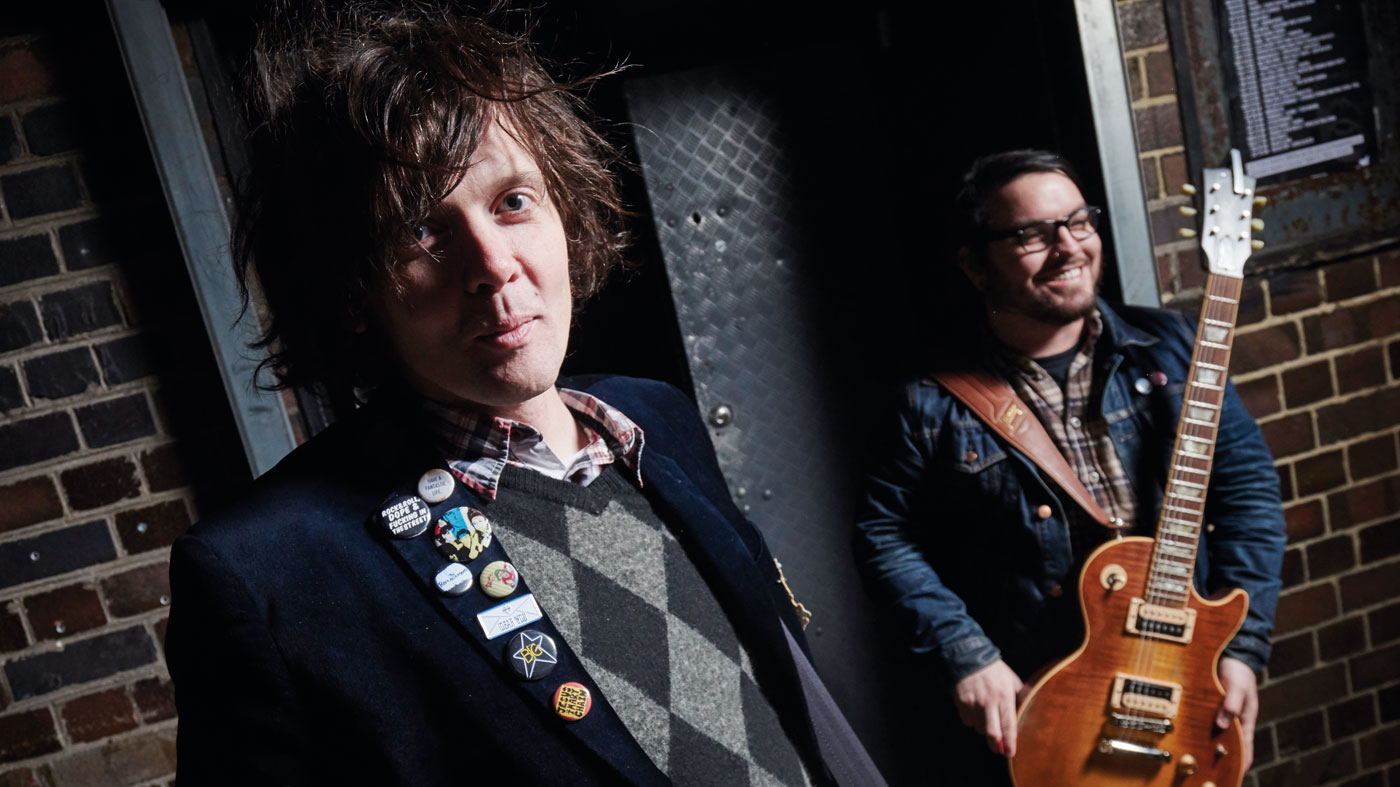
Introduction
James Alex is preaching the power of positivity in rock ’n’ roll, and he means every note of it. As we join his Beach Slang congregation on their UK tour, we find ourselves becoming true believers, too.
I said, ‘Okay, we’re going to call it Beach Slang and we’re going to make it matter.’
There’s a number of unwritten rock rules any aspiring guitarist may need to acknowledge during their quest to make it, and some of them are quite depressing. First up, have a stage persona that consists of always playing it cool, holding back your enthusiasm and maintaining a healthy dose of cynicism at all times.
Secondly, if you haven’t made it anywhere near big by the age of 30 you’re unfortunately going to need to make that rent-paying day job a priority. And finally, if you’re band has the word ‘Beach’ in their name, then you automatically suck.
James Alex either didn’t get the memos on any of those, or if he did he gave them the finger. “There was this band that said if you had beach in your name you couldn’t be taken seriously,” explains Beach Slang’s early 40s founder, vocalist and guitarist. “It was like you couldn’t matter, and it was almost this trend-hopping thing. So I said, ‘Okay, we’re going to call it Beach Slang and we’re going to make it matter.’” As we find out, when James says things like this, he really means it.

The artist and the individual
With many of the frontmen we meet there’s often a divide between the artist we hear in the music and the individual that sits in front of us, considering and answering our array of questions, and that’s understandable to a degree.
It’s startlingly refreshing to hear someone talk about their band, ideals and hopes with such unaffected optimism
Some surprise us with their unpredictability, while others are old hats at giving you just enough without offering too much of how they really feel. That’s not the case with James; what he calls a ‘heart to ear’ approach to playing music electrifies through every chord in his band’s blend of American punk rock and British indie influences on their two EPs and last year’s 27-minute adrenaline rush debut, The Things We Do To Find People Who Feel Like Us.
And it reflects in everything he says when he’s talking about his music with us in the dressing room of Bristol’s Exchange venue this evening. Because Beach Slang is an extension of who he is. And it’s actually startlingly refreshing to hear someone talk about their band, ideals and hopes with such unaffected optimism. But it wasn’t always that way for James. He’s consciously decided to go for broke with this.

Leap of faith
“Before Beach Slang started, I wrote the songs that would become the first EP,” he reflects.
“That was the first time I ever had the courage to just rip it all down and just do it. I think before then I’d grown up with such a fear of rejection that if I didn’t give my whole self, then if people rejected anything I did I could stay intact in some form because I could say to myself, I never gave them the whole thing.
I wanted to be honest that this was what I was feeling and this was where I was right now
“So it was really a jump off a building, because I had nowhere to hide if people rejected it; ‘Well now I’ve given you everything I am and you don’t like it.’ That was scary to do. But necessary. I wanted to be honest that this was what I was feeling and this was where I was right now. I did it, and fortunately rejections have been pretty minimal.”
Beach Slang formed in 2013 after the split of Weston - the Pennsylvania punk rock band James had played in since 1992. Weston had achieved a loyal following, but not broken through, and so Beach Slang represents a second chance that James is giving his all to; he writes the songs, designs the art (he’s a graphic designer, too) and manages a social media presence that feels like a club you want to be part of, prompting Spin in the US to gush, ‘This band could be your life’.
“Every word and syllable is considered,” asserts James, “because if I don’t care about it to that degree, why should I expect anyone else to?”
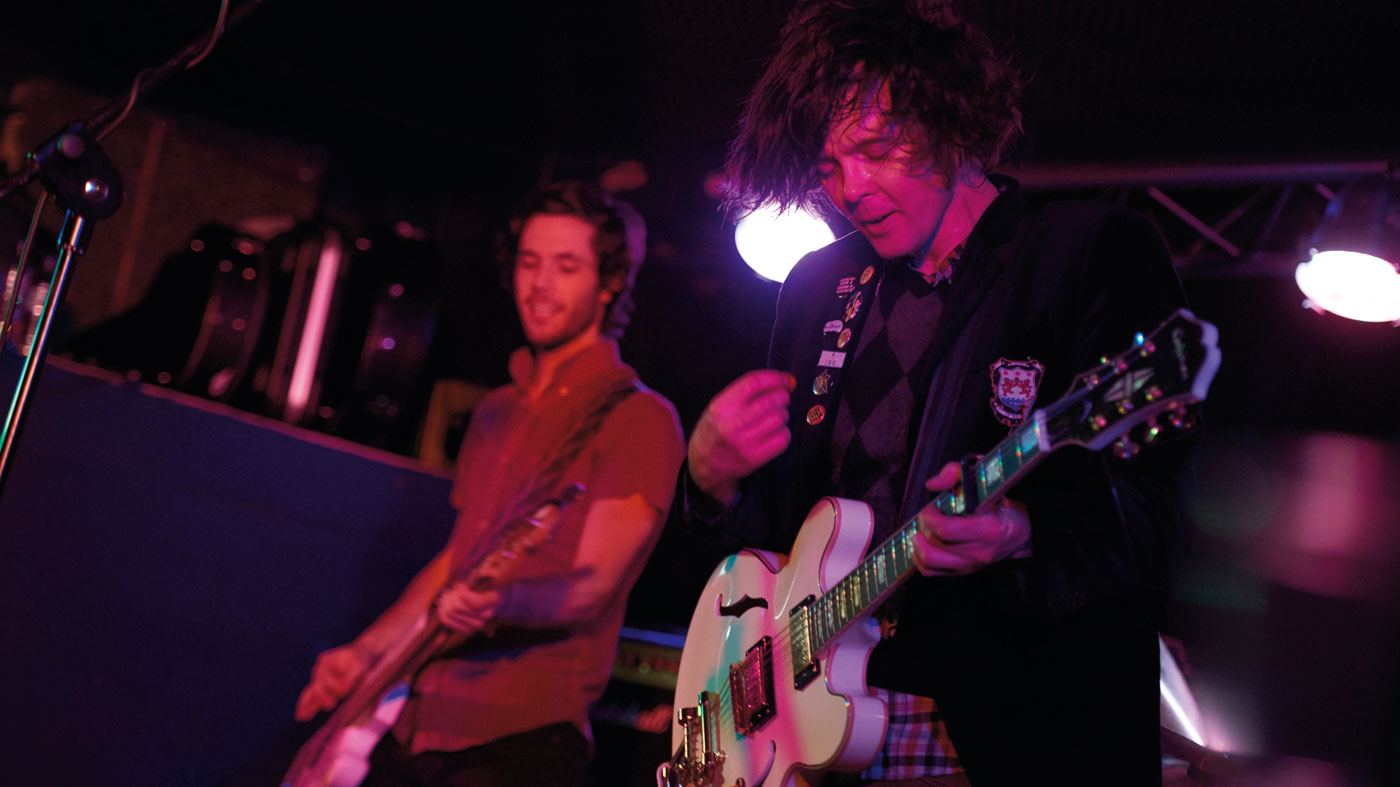
Pan-Atlantic players
It’s the songs themselves that will turn the curious into loyal fans, some already so affected by the music they’re getting James’ lyrics tattooed on themselves. Beach Slang’s sound crosses the decades.
They brim with the anthemic rush of hook-laden punk rock that draws on 80s and 90s Stateside icons
James himself has described his songwriting process as imagining he’s scoring to a John Hughes film, and that’s very apparent in the likes of Hard Luck Kid and Filthy Luck. They brim with the anthemic rush of hook-laden punk rock that draws on 80s and 90s Stateside icons, especially The Replacements, Jawbreaker (they cover Bastards Of Young and Boxcar in their set later that evening)… even early Goo Goo Dolls (before they went too, ahem, gooey).
But the unexpected twist in their guitar sound that adds depth to the raw energy is the British indie and shoegaze element of influences including Ride and The Jesus And Mary Chains in the expansive leads and tone.
“It was cool to figure out that sort of meshing worked because I wasn’t so sure it would when I was going for it,” notes James, who sees that side of their sound becoming more prevalent on the second record he’s already halfway through writing.
“I never want us to get stale so I want to keep pushing into those deeper influences. I don’t want it to be one note where it’s the Replacements Jr, because we dig deeper than that. And look, that comparison means the world to me but I just don’t want to get stuck there. I don’t want to be an impersonation of anyone.”

Sonic evolution
Beach Slang recorded their first two EPs as a three-piece with drummer JP Flexner (a fellow designer), bassist Ed McNulty and James covering all the guitars.
Ruben Gallego joined for the album, and James credits his contribution to some of Beach Slang’s progression.
I have these core parts but Ruben would colourise them in a way that I would never have dreamed of
“I have these core parts but Ruben’s such a superior guitarist to me that he would colourise them in a way that I would never have dreamed of doing,” says James, gesturing to the younger guitarist next to him.
“Or he would hear the part I had and say, ‘That’s really cool but what if we do it like this…’ It reshaped things in a really lovely way. Like on the single like Bad Art & Weirdo Ideas, that Johnny Marr shimmery tone, that’s Ruben figuring that stuff out. I don’t have the patience, I’m more plug in and go, but Ruben’s into that end of things. The sonic evolution on this record I largely attribute to Rubes.”
“I don’t feel like there are many guitarists who can convey emotion as well with single-note picking the way that Johnny Marr can,” picks up Ruben. “And his chord selection is amazing. Growing up I was a huge AFI fan too. Jade Puget; his guitar tone of a Les Paul through a Marshall is a big reason I play what I do.”

Big, fuzzy and raw
The band’s setup is simple enough, but reliant on very specific, well chosen ingredients and it began with a clear manifesto; “Big, fuzzy and raw. I just wanted it to feel real,” says James.
His rhythm guitar sound is a constant presence, swirling around your eardrums in an equilibrium of organic drive and his humble Epiphone Dot’s inherent chime, while Ruben lays reverbed howls and ascending breaks over it all to raw and glorious effect.
I just wanted to make an honest rock ’n’ roll record
“I remember going in to cut the first EP,” reflects James, “and I said to the engineer, ‘I want this to sound like a live record, but recorded with better microphones.’ I just wanted to make an honest rock ’n’ roll record.”
His founding sonic manifesto is mirrored in the universal themes James is singing about; that sense of lying in the gutter but staring at the stars; looking for hope while feeling like an outsider.
The untainted joy of being out with your friends is there too, and in the likes of Noisy Heaven and Young & Alive something surprisingly few artists these days seem to write about but some of us guitar players will know; the unrivalled buzz of playing music in a band.
James ponders why that could be. “I’m not sure why more bands don’t dive into that territory a little bit more. I think there’s an expectation that we have to be too cool to say how cool this life is. I’m not too cool to say how cool this life is; it’s great and I love everything about it. So I celebrate that unapologetically and publicly.”
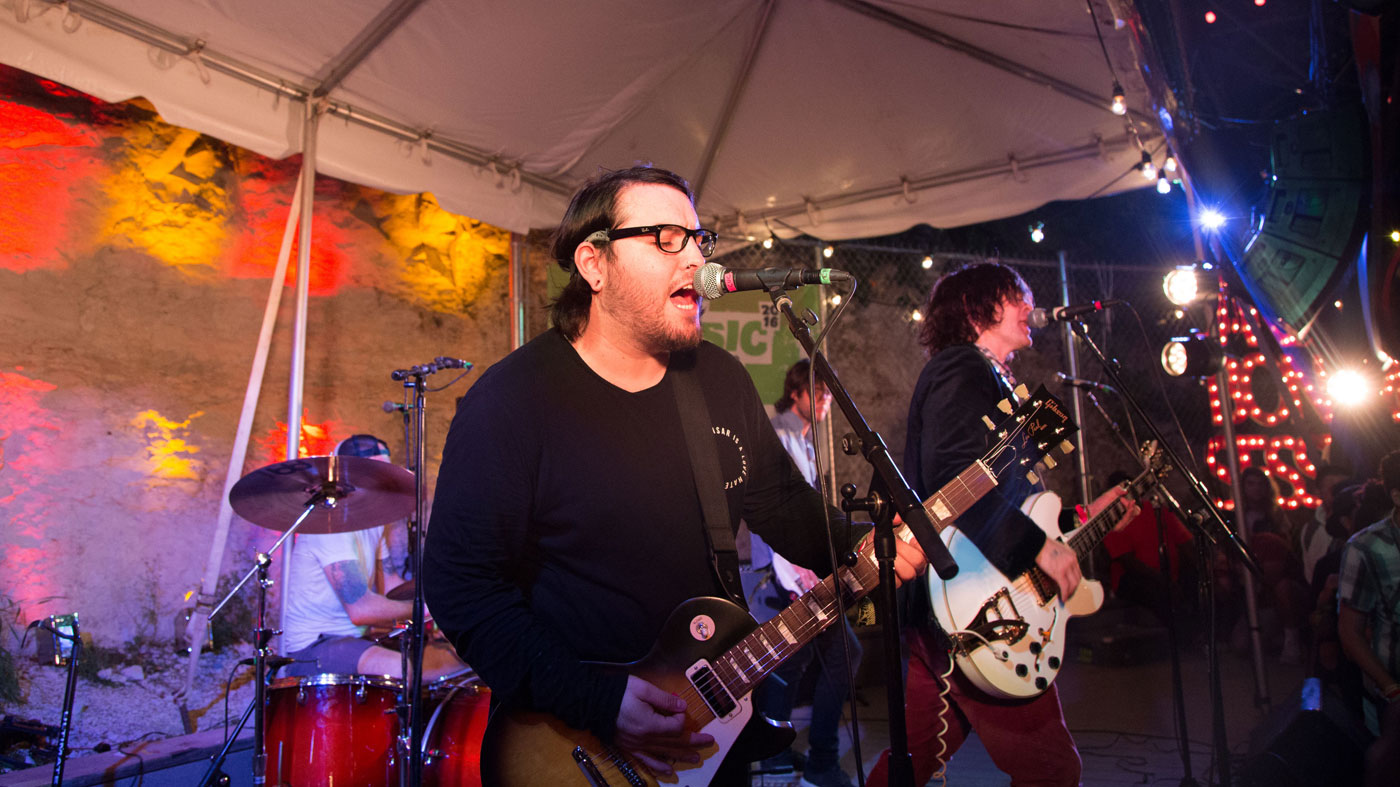
Proof positive
This openness strikes to the very heart of the band and the continuity between James Alex the man and the musician.
Though it’s not in a preachy or political way, it’s all there if you listen and read into what James is trying to convey
He’s clearly in love with rock ’n’ roll, but there’s an overriding sincerity and desire to channel it to become the change he wants to see in the world. And it marks Beach Slang out as a joyous proposition right now.
Though it’s not in a preachy or political way, it’s all there if you listen and read into what James is trying to convey.
And plain to see in the whirling dervish of energy he becomes onstage in Bristol tonight; giving everything to his songs in a performance that is the classic punk rock balance of looming chaos and confident control.
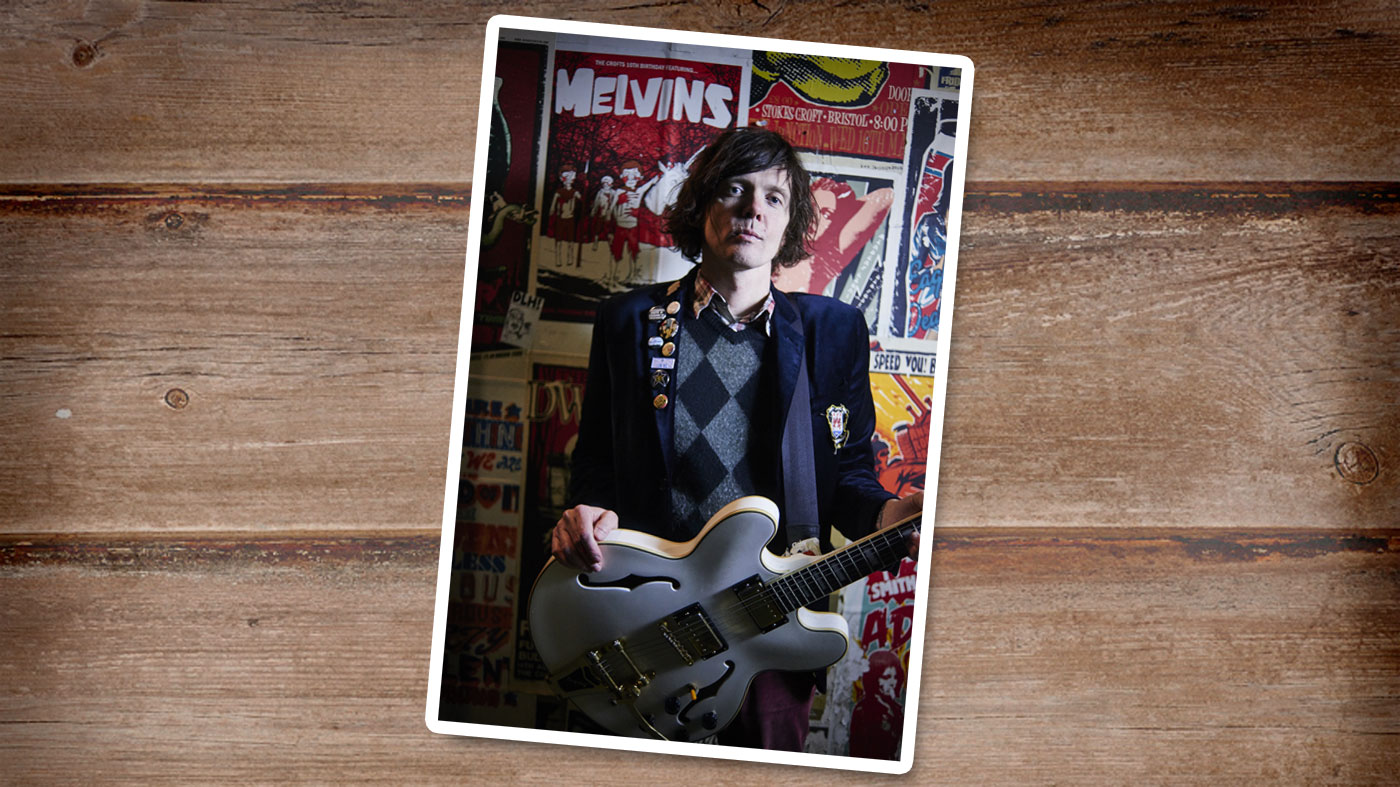
Cynical world
“I think for bands, for humans, they have a tendency to dwell on this sort of cynicism,” elaborates James on his outlook as we reach the end of our chat.
It’s really easy to see the glass half empty, but there’s something brave about being the person who does the thing to fix it
“That’s a real easy copout to say ‘this sucks, this is damaged’ or ‘everything’s terrible’. Okay, you’ve recognised that but what are you going to do about it? Just post that everything’s terrible on your Facebook page? Or are you going to be the spark that’s going to make it better?
“If your contribution to making things better is being a good person who just puts positivity out into the world, and that’s as far as it goes without any physical demand on you or anything, that’s still a really beautiful thing to do. If everybody did that, problem solved.”
That may sound idealistic and maybe even naively optimistic to you, but his logic feels like something to root for, and the power of rock ’n’ roll as a force for good is difficult to argue with for us. “It’s really easy to dwell and see the glass half empty,” reasons James,
“That’s shooting fish in a barrel at this point. There’s something brave about being the person who sees that and then does the thing to fix it. In our small way we’re trying to do that.”
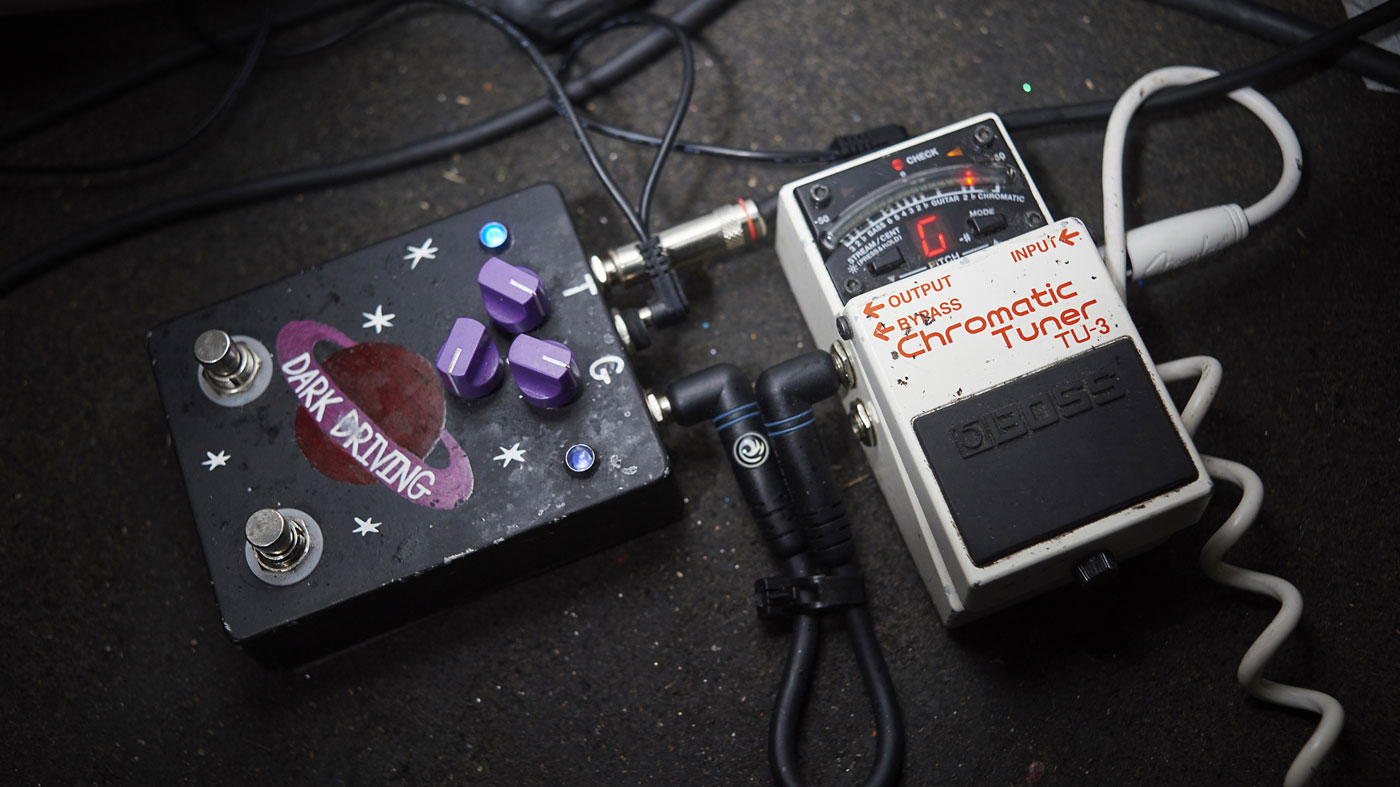
Fuzzrocious Dark Driving
James and Ruben explain their rig essentials...
James: “It’s been the key pedal in all the recordings. It’s the one that gets that Beach Slang guitar sound.
I could not believe that a single pedal could make that much of a difference
“It’s cool because they’re this little boutique shop; the husband makes them and his wife and little daughter paint the pedals. But they are unreal. They’re so close to the studio we record at and Dave [Downham], the engineer, said you should try them.
“I could not believe that a single pedal could make that much of a difference. You know when you listen to an Oasis record when Gallagher just builds those walls of guitar? That’s always in my head when I’m cutting records.
“When you put on an Oasis record in your headphones, you’re just attacked by guitar tone. And I just want to make sure that sort of a sweet growl is always in your ears. And I think this does that really well.
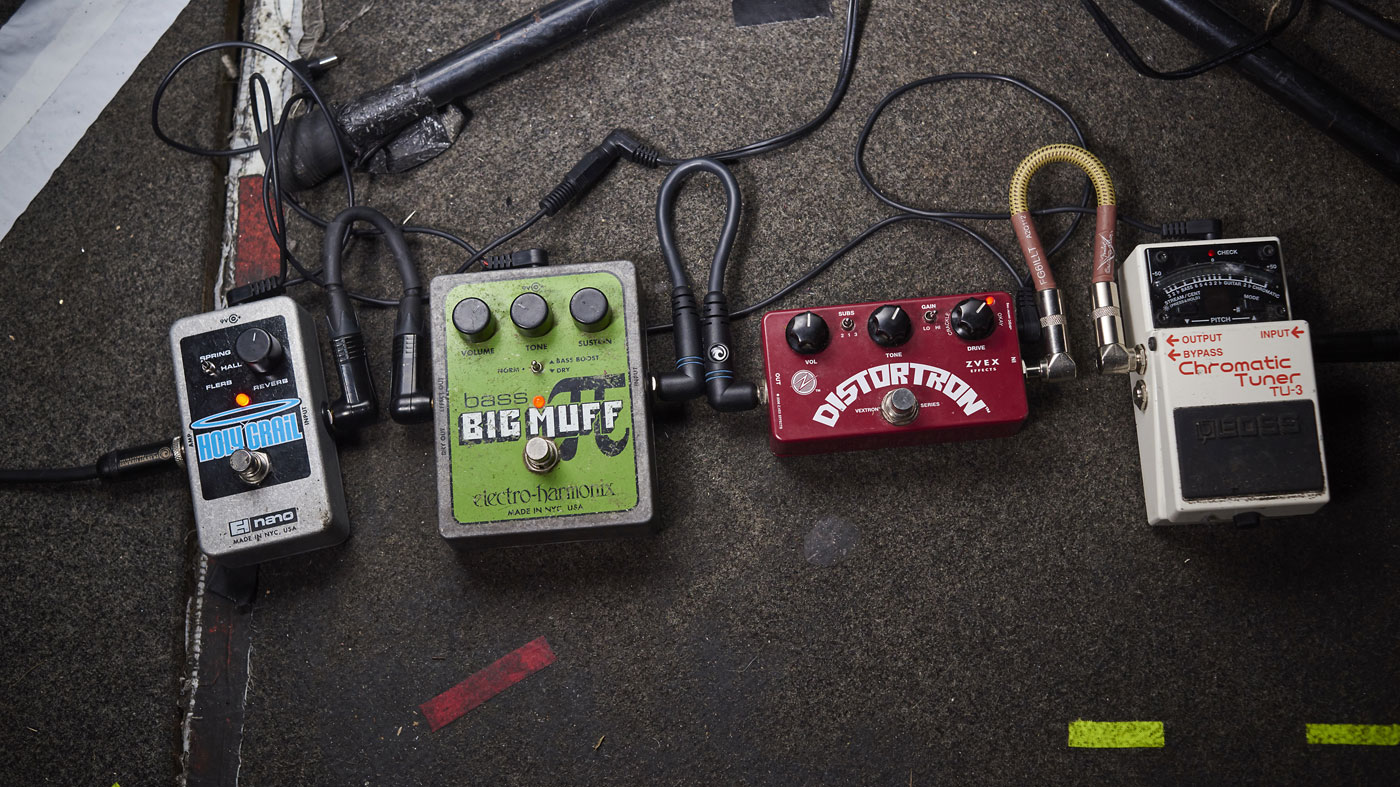
Zvex Distortron
Ruben: “It’s designed to mimic the sound of a howling Marshall JTM45.
It’s the pedal that mimics the sound of my amp
“Because the Bluesbreakers we use [in the US] are the reissues of that amp, it’s the pedal that mimics the sound of my amp so I don’t have to boost it as high, and I can scoop it real nice.”
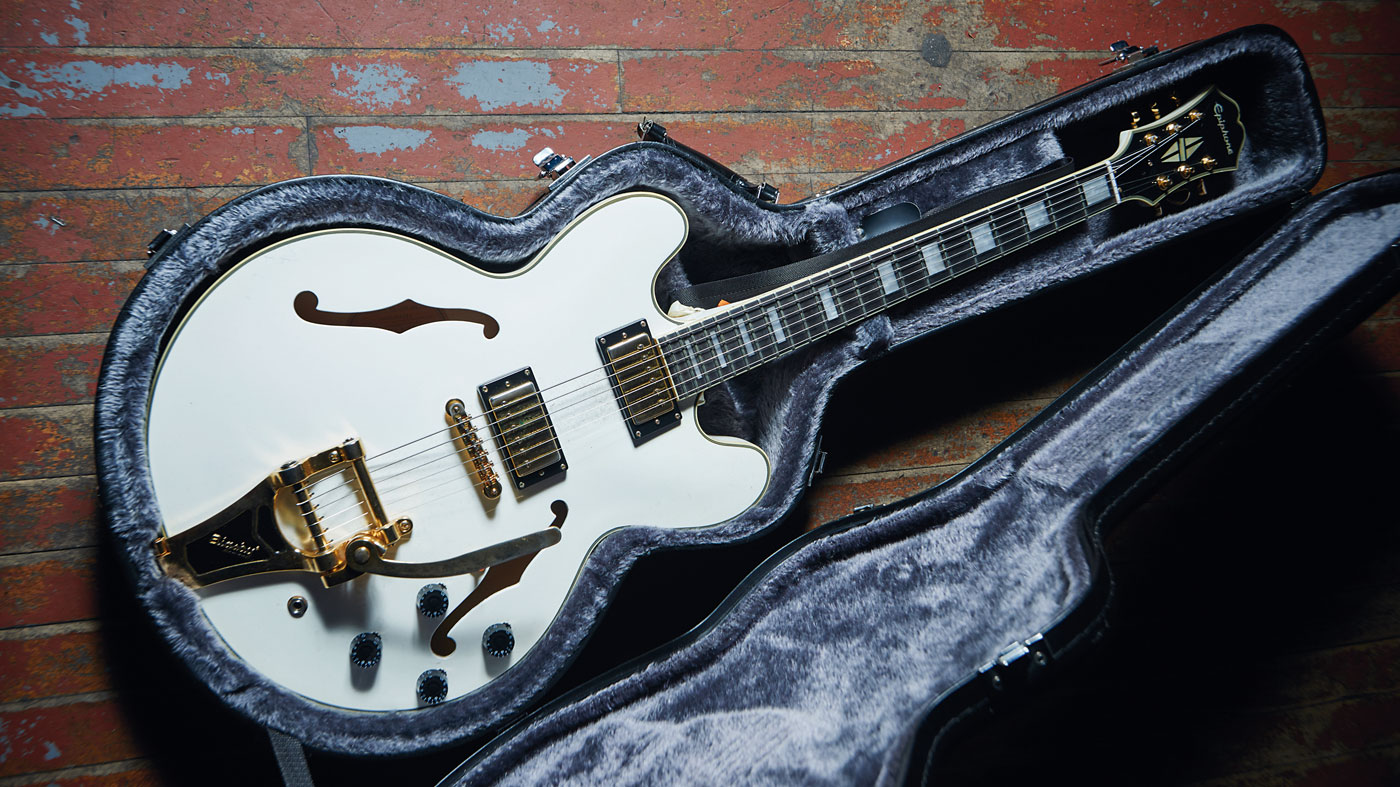
Epiphone Dot
James: “My old one is currently broken, so Epiphone have kindly loaned us this Custom Shop model. Why a white Dot? At this point it’s almost a kindred sort of thing.
You don’t need a $5,000 guitar to do something that matters
“Remember that cat in the Bible that wouldn’t cut his hair? That guitar is my hair. I love how it sounds. If I twist it and make it symbolic to a kid who’s picking up a guitar for the first time; you don’t need a $5,000 guitar to do something that matters.
“That first one cost me $250 when I picked it up and everything I’ve done with Beach Slang is with that guitar. When we went to the Rock & Roll Hall Of Fame I saw Joe Strummer’s guitar and it was this gnarled beat-up Fender and the man wrote all that stuff on that thing.
“The soul of a guitar is what matters and you can breathe really beautiful life into anything. I gravitate towards cheaper broken things because I think there’s a real beauty there. And it has served me well. I’ll go down with that thing.”
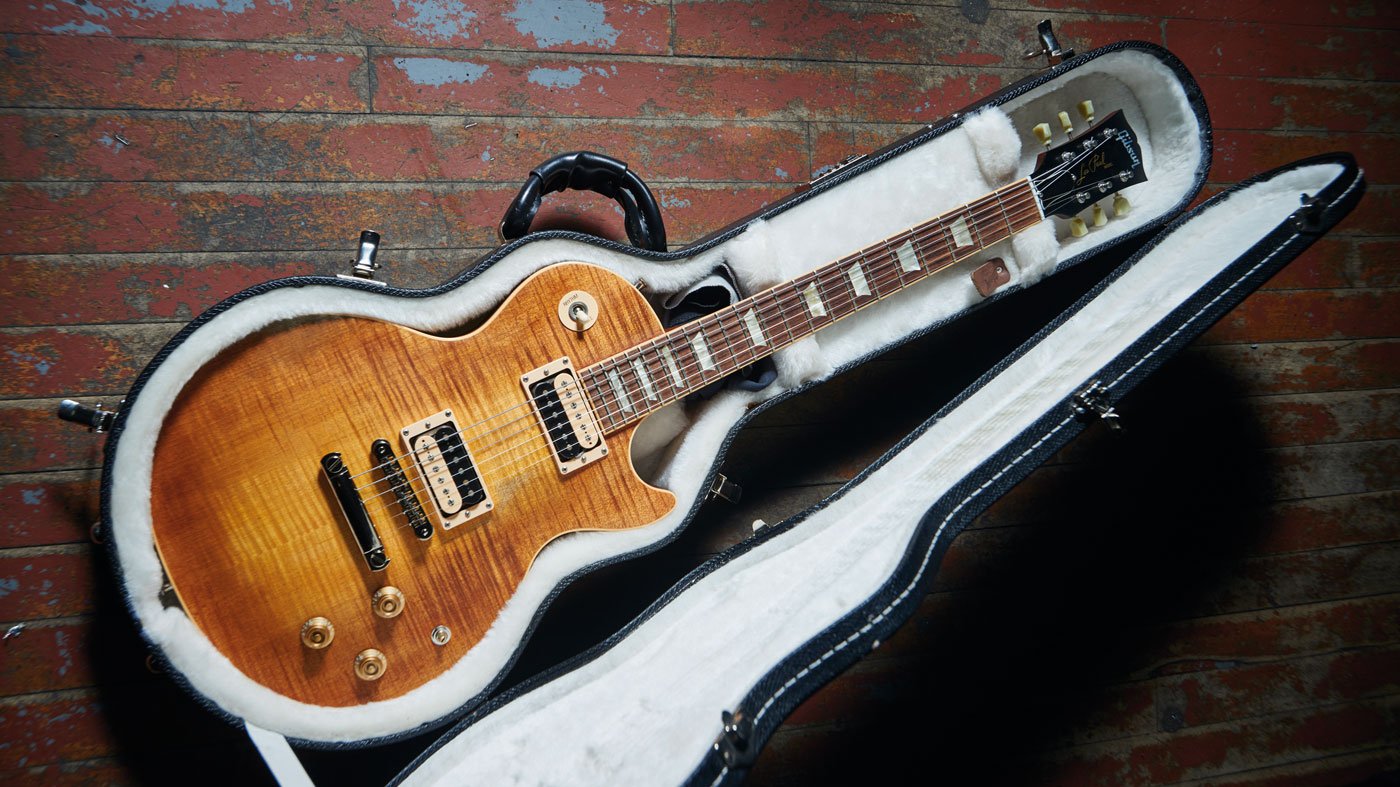
Gibson Les Paul Traditional
Ruben: “It’s weight-relieved so a light Les Paul. I’m all over the place.
I have seven guitars and if I had more money, I would have way more!
“I think in my bedroom I have seven guitars and if I had more money, I would have way more guitars. I’m definitely a Gibson guy and gravitate towards their guitars. Anytime I walk into a guitar shop that’s where I go first.”

Rob is the Reviews Editor for GuitarWorld.com and MusicRadar guitars, so spends most of his waking hours (and beyond) thinking about and trying the latest gear while making sure our reviews team is giving you thorough and honest tests of it. He's worked for guitar mags and sites as a writer and editor for nearly 20 years but still winces at the thought of restringing anything with a Floyd Rose.

